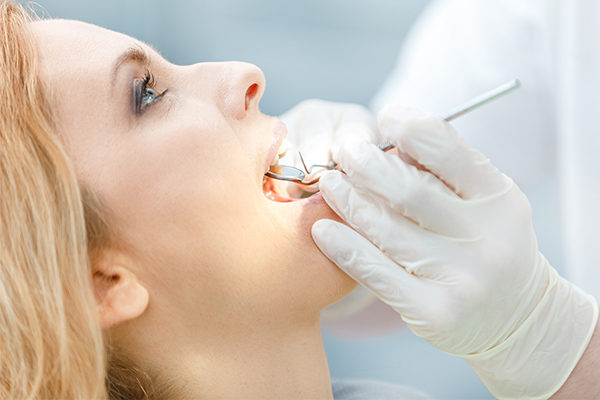In this article:
Wisdom teeth, or the third molars, are the hind teeth that grow at the rear end of the four mouth quadrants, at around 18–20 years of age or even later. (1)

The third set of molars is an evolutionary response to the rough diet consumed by our ancestors. However, since the modern diet consists of softer foods, wisdom teeth are now considered to be vestigial organs.
What Is Meant by Impacted Wisdom Tooth?
Since wisdom teeth are the last to emerge, they have to push against the already existing adult teeth for space resulting in impaction. This means that the late bloomers may not erupt completely out of the gums or emerge in a misaligned direction wherever they find room to grow.
Causes of Wisdom Tooth Pain

Wisdom teeth that grow in the correct alignment do not usually cause any pain. Impacted teeth, however, can lead to pain and infection in some cases.
Wisdom teeth may cause problems when:
1. The tooth grows partially through the gums:
- A flap of gum tissue may develop over the tooth and trap food particles. It acts as a breeding ground for cavity-causing bacteria, which eventually enter the gum tissue and cause pericoronitis. (1)
- The tooth may erupt at a tilted angle, causing damage to the jawbone, nerves, or adjoining teeth.
- The tooth may be crooked or grow in the wrong direction, causing cheek biting in some cases.
2. The tooth does not break through the gums
This can cause pain along with swelling and inflammation in the gums. The tooth may push the adjoining teeth, thus building up the strain. (2)
3. The tooth is awkwardly positioned
This makes it difficult to brush around them and the adjacent molars, leading to poor oral hygiene.
4. Cyst formation
The tooth is trapped between the gum and jaw, resulting in cyst formation. These fluid-filled pockets often result in permanent damage to other teeth and the jaw.
Signs Your Wisdom Tooth Is Surfacing
The following symptoms indicate a growing wisdom tooth:
- Pain at the back of the mouth, near the second molars
- Painful gums or jaw
- Swelling and redness in the gums
- Headache
- Stiffness in the jaw
- Hard bump in the gum
- Bad breath
- Difficulty in chewing and biting
- Sinus pain, congestion, or pressure in the upper jaw
- Tip of the tooth visibly emerging from the gums
Medical Treatment for Painful Wisdom Tooth

It is recommended to visit a dentist if you experience any pain or other symptoms associated with impacted wisdom teeth.
1. Wisdom tooth extraction
A wisdom tooth extraction may be suggested to remove the source of pain and prevent any complications.
2. Painkillers and antibiotics
Painkillers and antibiotics are prescribed before operating if the tooth is infected.
It is advised to get your teeth checked when you reach 16–19 years of age, as some experts recommend extraction before you are 20 to prevent complications.
The benefits of extracting wisdom teeth versus the risk of post-operative complications are evaluated by your dentist to make a decision.
Diagnosis
The dentist will examine your symptoms and take a look at your mouth and jaw. This is followed by an X-ray of the teeth called Panorex (a full-mouth X-ray) to examine their position.
Such procedures help in predicting whether the wisdom teeth will come out normally or may cause problems.
Potential Side Effects of Wisdom Tooth Extraction
Wisdom tooth extraction may cause:
- Nerve and blood vessel damage, leading to numbness in the tongue or face and bleeding
- Swelling around the mouth
- Trouble in opening the mouth for a few hours or days after surgery
- Infection in the wound, characterized by pain returning in 4–5 days, along with bad breath and swelling
- Dry socket
- Delayed healing
When Does the Pain Subside?
The duration of pain associated with wisdom tooth eruption varies among people. For some, the pain may manifest even before there are physical signs of the eruption of the tooth. Others may experience sensitivity and soreness when the crown starts to appear.
The pain will last until the tooth grows and breaks through the gum completely, which may take several weeks or months. However, if the tooth is impacted or misaligned, it may continue to hurt.
When to Visit the Dentist
Consult your dentist if you experience any of the following symptoms:
- Pain
- Oral infection
- Inflammation in the gumline at the back of the mouth
- Swollen face
Final Word
Wisdom teeth are the last molars, but not everyone develops them. Being the last teeth to come through, they lack space to grow, as a result of which they may be impacted. They can affect other teeth, causing pain and infection.
It is advised to visit your dentist, as wisdom teeth are often extracted to prevent any future complications.

- Was this article helpful?
- YES, THANKS!NOT REALLY


